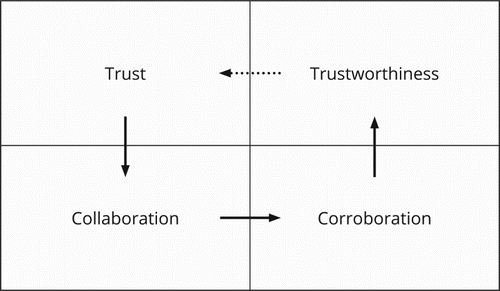Be(com)ing a reflexive researcher: a developmental approach to research methodology
Mariam Attia & Julian Edge (2017) Be(com)ing a reflexive researcher: a developmental approach to research methodology, Open Review of Educational Research, 4:1, 33-45, DOI: 10.1080/23265507.2017.1300068"Reflexivity involves a process of on-going mutual shaping between researcher and research." The authors suggest a developmental approach to research, which involves "being/becoming, creative capacity, and socially mediated internal growth." They discuss that their perspective is particularly salient for qualitative research, due to it "demand[ing] an empathic ability to relate to social and psychological realities other than one’s own." Further, research is increasingly cross-cultural, and the authors propose researchers have the capacity to grow from doing such research.
Reflexivity
They highlight two "interacting elements" of reflexivity: prospective and retrospective reflexivities. Prospective reflexivity focuses on the effects of the research on the researcher - the mutual shaping. Retrospective reflexivity focuses on the interpretation of that shaping or growth, the distance travelled.Reflexivity is accessed through reflection, observation, and interaction with others (e.g., research conversations with colleagues). Reflexivity is defined by conscious self-awareness.
They discuss the concept of "researcher congruence ... [the] fit between the professional principles that we declare and our actual professional behaviour." Such an approach means embracing openness to changing, and "the expression of our personal values, along with the use of our personal skills, in our professional lives and vice versa."
Relationship Elements
Affective elements underpinning reflexive research. She describes this as a process of moving from trust to trustworthiness.

